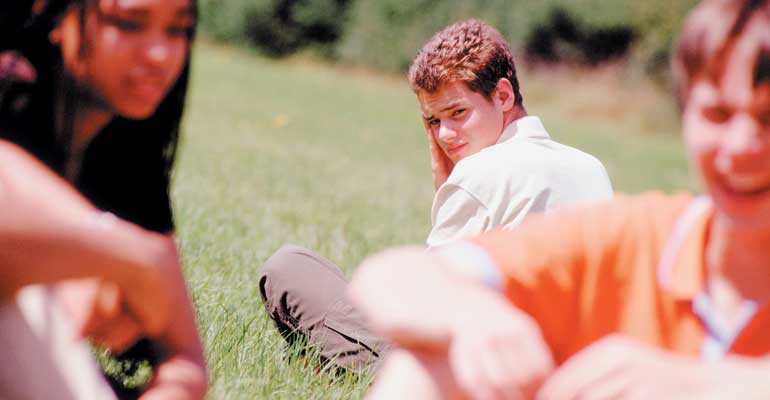John has started at a new summer camp, where he knows none of the kids or counselors. He usually adjusts to new situations quickly, but the 10-year-old still feels alone after a week there. He feels “different,” even though the other kids don’t know he was adopted.
Because he’d been quieter than usual at dinner, his mom quizzed him. But he changed the subject. Just when you think your child is secure about the way your family was formed, after years of openness, discomfort about adoption returns. Why?
Searching for Sameness
“This is the ‘age of embarrassment,'” says Cheryl Proctor, an Ohio-based expert in post-adoption issues. “Preteens don’t want parents seeing them dressing or undressing, nor to be teased about the opposite sex. They don’t want to talk about their day, or about adoption, because it evokes feelings they may not know how to express.”
Preteens and young teens don’t want to be different. They’re involved in establishing “pecking order,” determining who’s cool and who’s not. What’s important is to be like everyone else. So a child’s adoption status, whether or not it’s known to the group, can be a source of embarrassment.
Then there’s the spectre of another set of parents. “A child knows there must be someone else out there that they have a connection to,” Proctor says. “This realization, coupled with feelings of divided loyalties, leaves some kids feeling different from their peers and embarrassed about it.”
How You Can Help
Such feelings about adoption are normal at this age. Your child may hate to discuss them, but there are other ways to help. First, Proctor recommends taking part in an adoption event. Being around other adoptive families helps a child see that his status is not unique to him. Activities like this offer a non-threatening arena where a child can see and talk with kids who are coping with similar issues.
Another strategy: “Point out, when it is appropriate, a hero who is an adoptee or adoptive parent,” Proctor suggests. Heroes and role models are important to a child at this age. Aside from a famous person, a hero might be a local coach, teacher, or athlete, even a teen at school or someone at church.
Finally, deal directly with embarrassment and any other feelings about adoption. Open the door for discussion by saying that you’ve noticed he seems uneasy about his adoption. Use adoption-themed stories or films as springboards for conversations. Your own comfort with the discussion will go a long way in helping him overcome his discomfort with feeling different.

